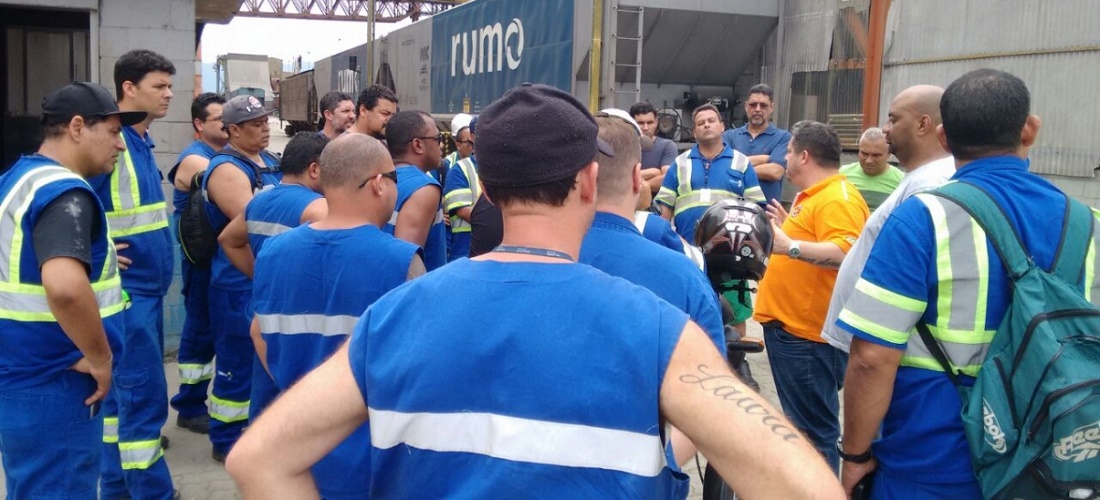
Ogmo raises disagreement between BTP and Santos Brasil due to labor debt
Jul, 04, 2019 Posted by datamarnewsWeek 201928
Ogmo (Labor-Management Body) is in dispute with Brasil Terminal Portuário (BTP) and Santos Brasil, two of the country’s largest port operators, because they do not accept a new form of funding for the entity that has labor debts that can reach R$1bn.
Created by the ports law in the 1990s, Ogmo is an association in which 47 operators are part of today. Its purpose is to provide temporary labor to terminal lessors.
Companies request labor from the agency, which is responsible for remuneration. On the other hand, they make monthly financial contributions to Ogmo presented their calculation in the entity’s meeting.
In March 2019, however, Ogmo modified, with the approval of the majority of associates, a new cost criterion. This change motivated the fight between the operators and the institution.
The change seeks to cover part of the organization’s multimillion-dollar labor liabilities. The body does not report how much it owes to the Labor Court, but the amount exceeds R$500m, according to the union of the stevedores of Santos.
There are 3,548 labor proceedings in progress in TRT2 (Regional Labor Court of São Paulo) against the agency. According to people familiar with the situation, the amount owed is close to R$1bn.
Until March, the contributions paid by the operators varied according to the requisition of workers, but the value began to be calculated based on the volume of cargo handled by each lessor.
Discord
According to the Stevedores’ Union, the modification would have been necessary because BTP and Santos Brasil started hiring employees directly and, with that, reduced their payments to the institution.
“Strictly speaking, they could not do this direct contracting, but the Justice let them about three years ago, in a process that we questioned. Even so, companies have joint liability in labor liabilities [of Ogmo],” says Rodnei da Silva, president of the union.
BTP and Santos Brasil did not accept the collection criteria defined at the meeting and asked the court for an annulment, which was granted by Judge Dario Gayoso Junior in a preliminary injunction in April.
In the process, they argue that the new criterion is illegal because it functions like a tariff, not linked to the requisition of workers. As a private entity, Ogmo could not create taxes.
“The new costing format will lead to absurd situations, (…) a port operator that moves 1,000 tons and requires the labor of 200 workers will pay considerably more than one (…) that moves 10,000 tons and uses 20 workers.”
The judge granted an injunction (provisional decision) for the three operators to return to make payments according to the old criterion, but determined that the difference deposited in court.
“What companies are doing is a move in order not to pay the labor lawsuits, even though they are the biggest movers of the port.” The other operators accepted the new criterion, but BTP and Santos Brasil want different treatment,” Silva says.
Meanwhile, Ogmo said that the new form of the collection was discussed with members and approved by a majority in an assembly as a way to ensure that the entity complied with labor liabilities.
At the end of June, there was a conciliation hearing between landlords and Ogmo, but there was no agreement. Although sought after, Santos Brasil, BTP, and Ogmo did not comment on the matter.
Source: Diário de Pernambuco
-
Ports and Terminals
Jul, 31, 2019
0
Tecon Santos promises to generate 850 jobs
-
Ports and Terminals
Jun, 19, 2019
0
Online shift work system to be implemented at Port of Santos
-
Ports and Terminals
Jun, 12, 2019
0
Santos Brasil handled over 100,000 containers in May
-
Ports and Terminals
Aug, 16, 2019
0
Santos Brasil container handling grows 20.3% in 2Q19

